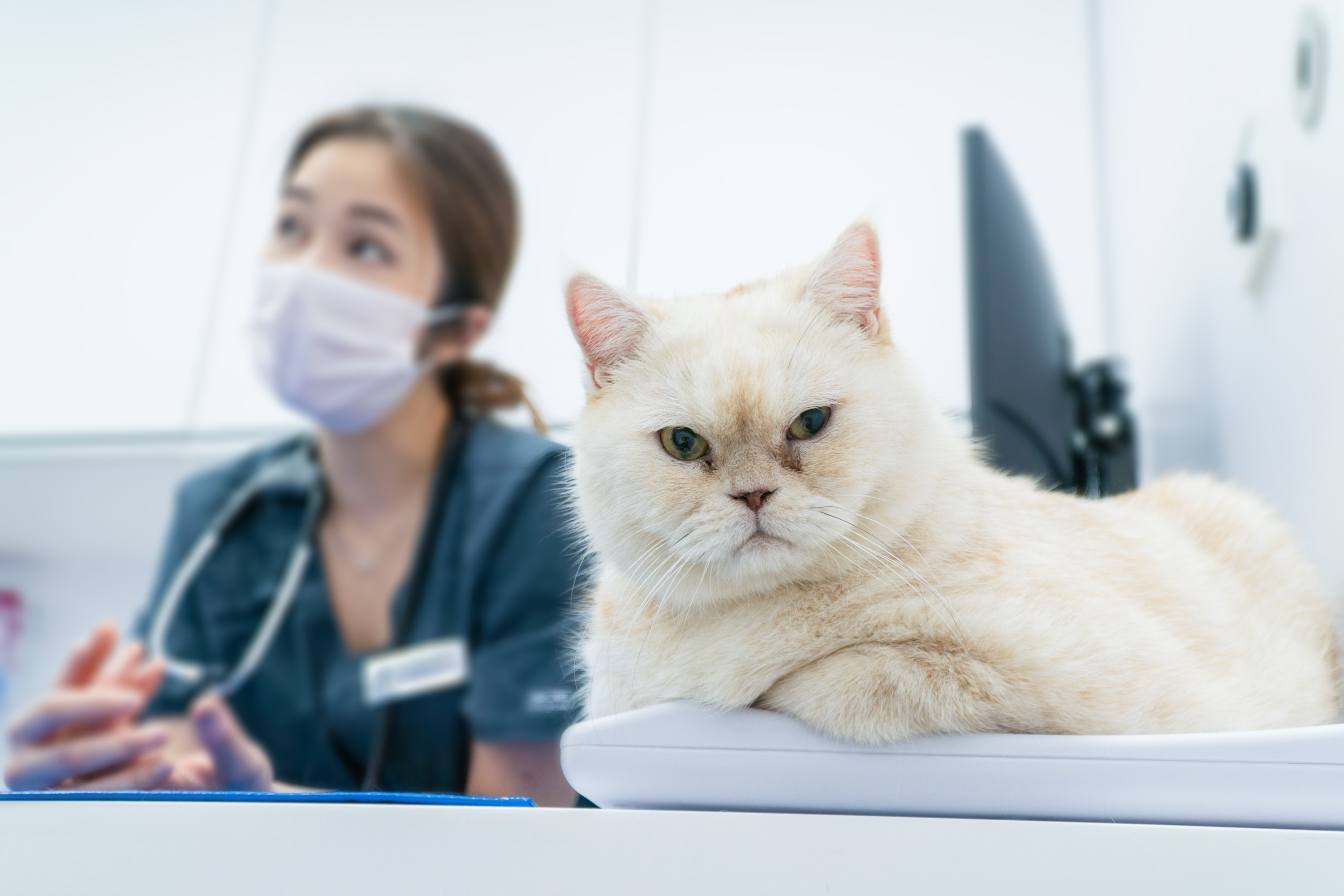New cat owners always have the question of whether their cats need vaccinations or not. What are the "core vaccines" and "FVRCP (F3)" that we often hear about? Dr. Kaylen, a registered veterinary surgeon, will give you all the answers.
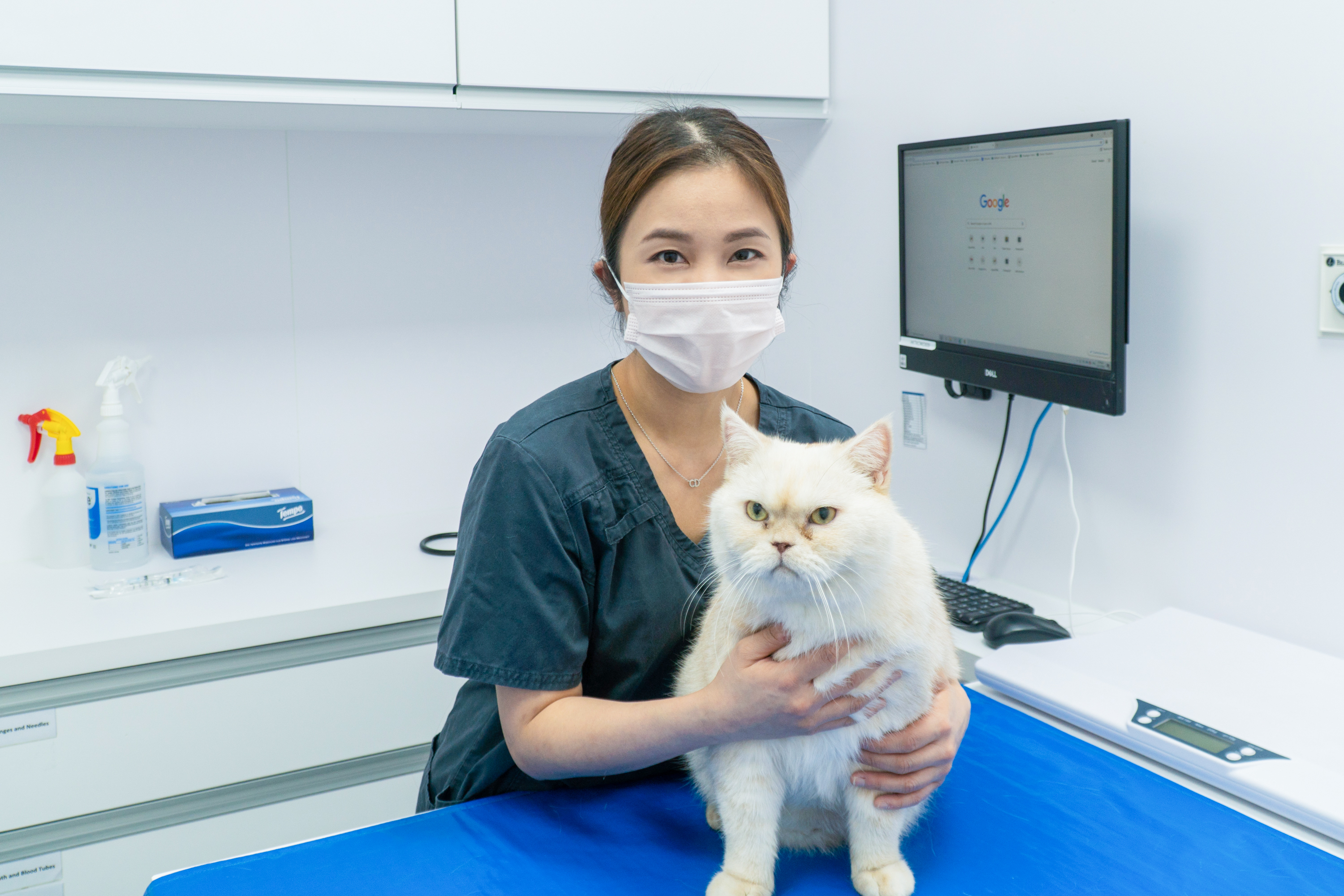
Creature Comforts TKO Veterinary Center Dr. Kaylen
Q. Is it a must to have vaccinations for cats in Hong Kong?
Unlike dogs, there is no legislation in Hong Kong that requires cats to be vaccinated. The Agriculture, Fisheries and Conservation Department of Hong Kong does regulate rabies vaccination, microchipping and dog licensing for dogs, but for cats, it is legally not to vaccinate or microchip cats. But just because it's not illegal doesn't mean you don't have to do it! Most veterinarians recommend vaccination for cats to protect their lives and health.
Q. What are the health risks for cats without vaccinations?
There are a number of infectious viruses that are widely circulating among cats in Hong Kong, including Panleukopenia, Herpes and Calicivirus. All three viruses are prevalent in Hong Kong, and whether your cat comes from a pet shop, adoption center or is a stray, there is a high risk of exposure to these viruses.
Panleukopenia has a very high fatal rate. When a cat's white blood cells are reduced, it may suffer from vomiting and upper respiratory tract infections. Panleukopenia is particularly dangerous in young cats with a high mortality rate, more than 50% of deaths are cats which are less than 1 year old. Once the cats have it, they must stay in the hospital for treatment.
Herpes virus causes viral rhinotracheitis and, like Calicivirus, both cause cats to have cold symptoms such as sneezing, runny nose, coughing and panting, so they are often referred to as 'cat flu’. Calicivirus is more likely to cause mouth ulcers, which can stop cats from eating and make them weaker. Although the mortality rate is not as high as that of Panleukopenia, however, in the unlikely event of infection and without proper treatment, the cat may refuse to eat and may suffer from hypoglycemia and shock, with the risk of death.
All three viruses are transmitted by contact with feces, body fluids or shared items carrying the virus. Herpes virus can also be transmitted through the mother's body. If a cat mother has the virus herself, her kittens may become carriers of the virus throughout their lives and may become ill if they are exposed to environmental changes, stress, weakened immune systems, etc.
Dr. Kaylen emphasizes that all three of these viruses are very common infectious diseases and that they can all be prevented by vaccination.
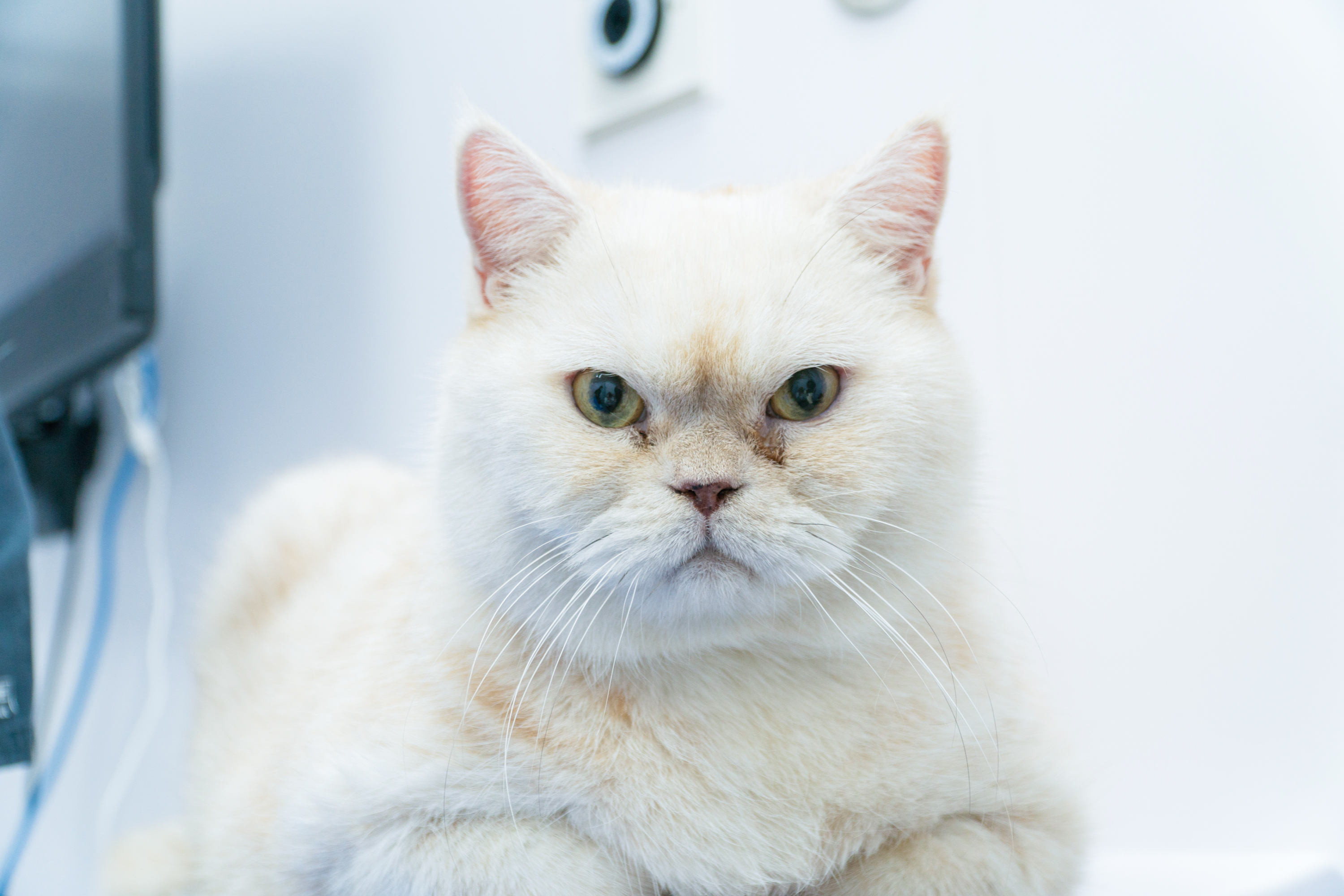
The vaccination is for your cat's health.
Q. What vaccinations are normally required for cats in Hong Kong?
Dr. Kaylen advises that the most basic vaccination for cats is the FVRCP, known as the "F3" vaccine, which is a "three-in-one vaccine" that protects against the three common viruses mentioned above. Basically, all FVRCP (F3) vaccines available at legal clinics in Hong Kong have the same function.
Some clinics in Hong Kong may offer the F4 vaccine, with an increase in the number indicating an increase in the number of diseases for which the vaccine is available. There are many different types of F4 vaccine and not all clinics offer the same. There are even F5 vaccines available overseas, but they are not common in Hong Kong.
Then comes to one question. Is the higher the number, the better? The answer is no. Dr. Kaylen, with her years of experience, says that the FVRCP (F3) is sufficient for cats. If a cat owner is really interested in the F3+ vaccine, he or she should do their own research to see if the vaccine offered by the clinic is really what they want.
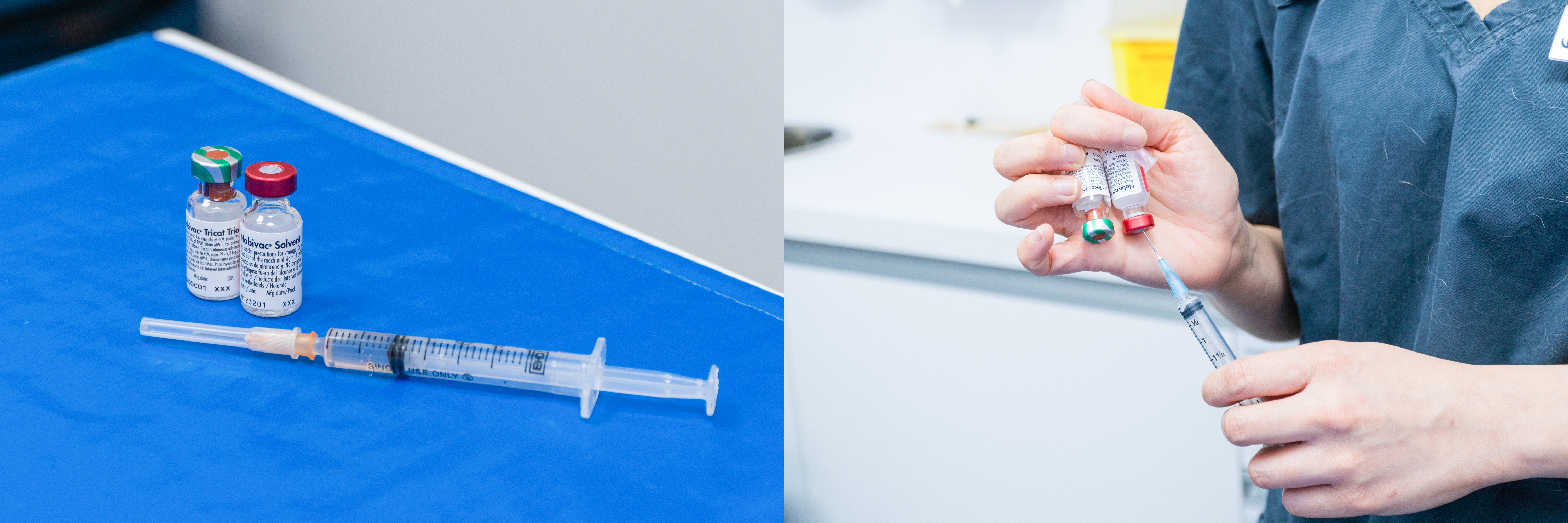
FVRCP(F3)is a "three-in-one vaccine" that protects against the three common viruses.
Q. Does it mean that my cat won't catch the disease if it has the vaccination?
Vaccines are not omnipotent. Of the three viruses, only Panleukopenia is absolutely and completely vaccine-preventable.
For Herpes and Calicivirus, however, the vaccine can only reduce the chance and severity of the attack, but it does not mean that it can prevent it completely. Although it’s not 100% immune, the vaccine can definitely reduce the symptoms of the disease, reduce the suffering of cats, and effectively reduce mortality. Studies have shown that the mortality rate of unvaccinated cats infected with Calicivirus is 50-67%!
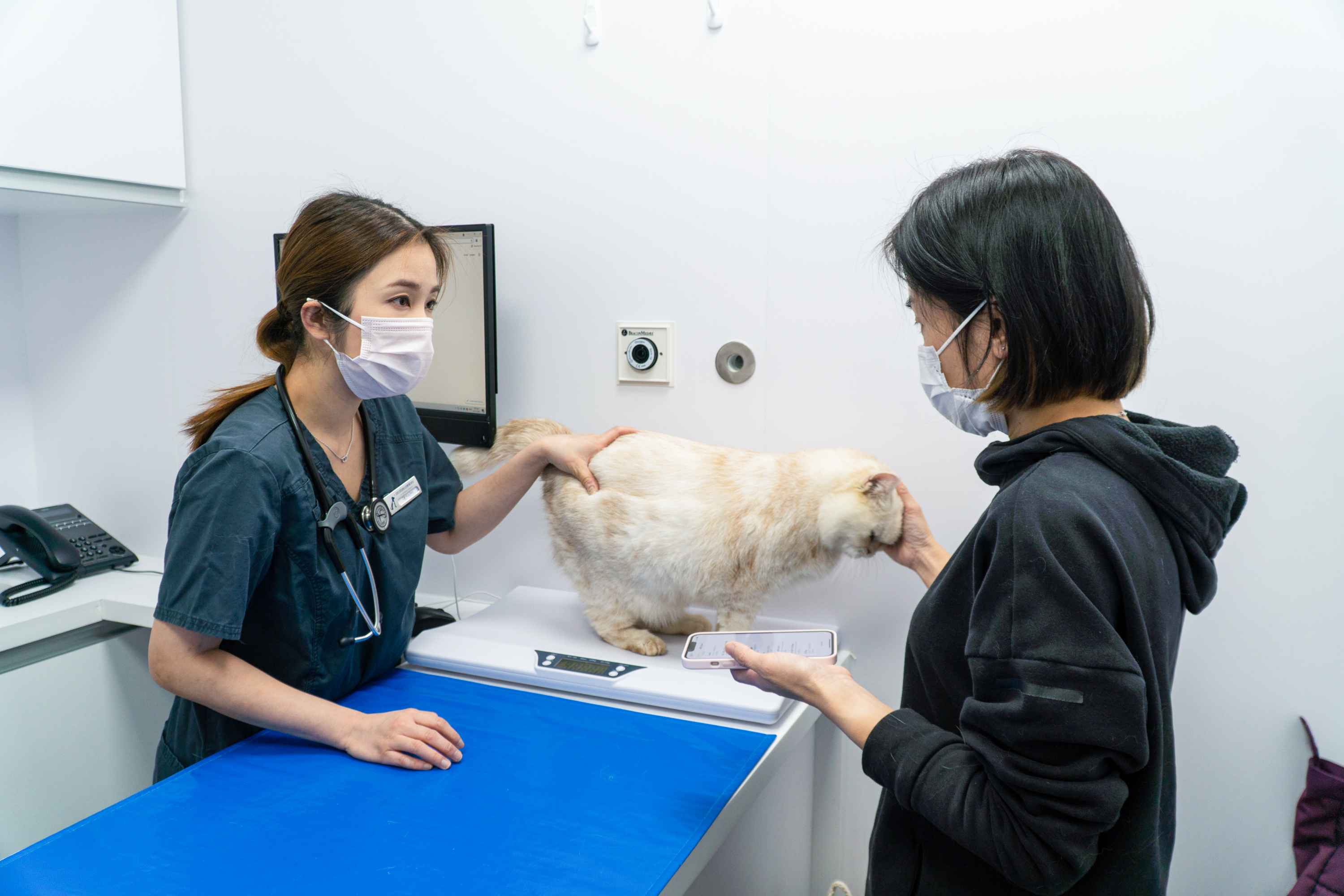
The veterinarian will communicate with the cat's owner to understand the cat's health before the vaccination.
Q. My cat only stays at home and doesn't go outside, does that mean it doesn't need to be vaccinated?
This is a question that almost every cat owner has, and Dr. Kaylen understands how cat owners feel, but! The answer is that even if your cat doesn't go outside, it still needs to be vaccinated.
She stresses that it is so common for cats to be carriers of these viruses that "it is possible for all cats to have them". It is possible for a cat to be born with the virus from its mother, or to have had the virus before adoption or before leaving the pet shop, but have not yet developed.
If you are from a family with multiple cats, you should vaccinate all your cats. Because if one of the cats gets sick, cats within the same house will all be affected. Dr. Kaylen once knew an owner who had seven cats in his home that all the cats developed a flu after adding a new cat. It took the owner eight months and $20,000 to get all the cats back to health. If the cats had been vaccinated at the beginning, they would not have suffered this much.
Even if the cat doesn't go out, the owner will go out! " I had a personal experience with a client who worked in a pet shop and brought the virus into his home, eventually killing his cat." she warns.
Therefore, all cats that do not go outside need to be vaccinated. If your cat goes outside, or even walks freely and has met many other cats and kittens, there will be more vaccinations that it needs to take, but that is a different discussion.
Q. When should I start my cat's vaccinations? How often do I need to top up its vaccinations?
The first vaccination can be given as early as 2 months old, followed by a second booster at about 4 months old and a third booster at about 6 months old. A full course of vaccinations is required to complete by vaccinating with three doses.
After one year, you can take your cat for another booster, and after that, you can take your cat for another booster just every three years. If there are many cats in the household and they have frequent colds, your vet may recommend annual vaccinations. If you bring home an adult cat and don't know your cat's past vaccination history, Dr. Kaylen suggests reducing the number of vaccinations by one and giving a booster 3-4 weeks after the first vaccination to complete the first course of vaccination. Although it is best to start your cat's vaccinations as a kitten, adult cats can also get the same benefits from vaccinations.
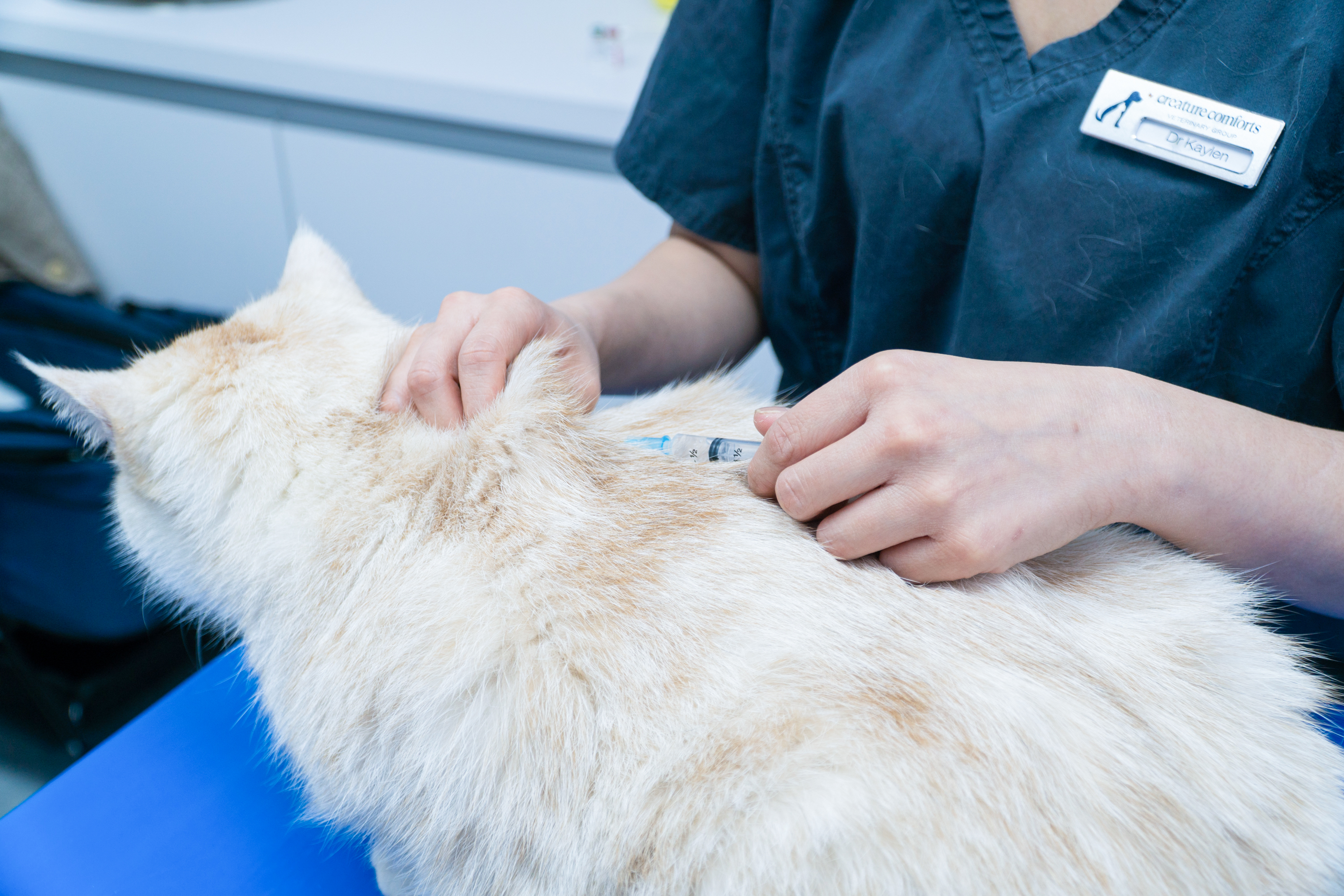
The vaccination is very quick and does not cause any wounds.
Q. Are all cats suitable for vaccination?
The FVRCP (F3) vaccine is suitable for all breeds of cats of all ages, as long as the cat is not suffering from any specific illnesses or allergies. However, if your cat is not feeling well, such as vomiting, poor appetite, swollen eyes, coughing, runny nose, skin infections, etc., you should not insist on vaccination when your cat is sick.
Doctor says that it is important for owners to ensure that their cat's diet and movement are not abnormal before the vaccination. The doctor will also do a brief physical examination and understand your cat's past medical history before giving the vaccination.
Dr. Kaylen also reminds owners not to rush to get their cat's vaccinations on the first day they bring their cat home. It is advisable to allow your cat to settle at home for at least one to two weeks, and to arrange for the vaccination only after the owner has checked the cat's condition and habits to ensure it’s health.

The vet will also do a brief physical examination before the vaccination.
Q. Will vaccinations cause allergies or side effects in cats?
"Just like human vaccinations, there is a chance of reactions” Dr Kaylen admits. While all foreign substances enter the body, no matter how safe, it may cause some minor reactions. However, according to Dr. Kaylen's years of clinical experience and observations in veterinary clinics, as long as the procedures are followed to ensure that the cat is in good health before the vaccination is given, it is basically safe.
Dr. Kaylen says that one or two cats a year may have swelling problems after the vaccinations, but they can be treated with an anti-inflammatory injection. Some cats with more severe cases may vomit, but this is a very rare occurrence and a symptom that doctors are able to manage. Therefore, owners do not need to worry too much, as long as they pay close attention to their cat's health within a day after the vaccination.
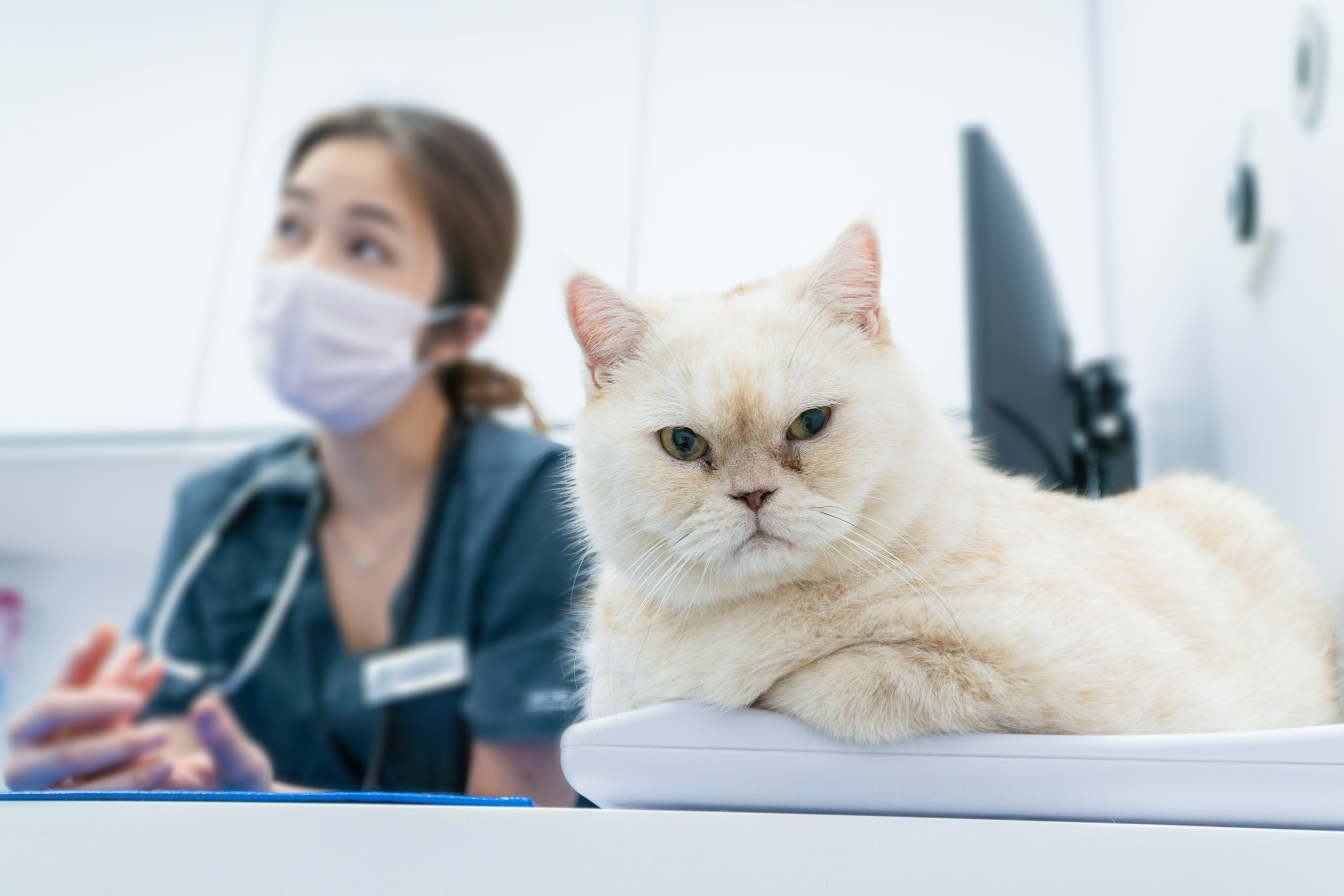
Q. How much does it cost to have my cat vaccinated?
Charges may vary between clinics. For example, at Creature Comforts Tseung Kwan O Cat Hospital, the fee for a simple veterinary consultation and examination and a FVRCP (F3) vaccination is HK$345, and additional fees will be charged if the doctor finds any other health problems that need further attention. Generally speaking, a few hundred dollars is all that is needed for a vaccination, which is affordable.
Q. What is the purpose of the "vaccination card" issued after vaccination?
The vet will sign a vaccination card for your cat after the vaccination. The card is an important record that contains all the vaccination information, the date of the vaccination, the doctor who issued it and the name of the veterinary clinic. Most owners do not remember when and what their cat has been injected with, so if you keep the card, you will be able to find out. Moreover, If you are thinking of emigrating, then a needle card is a must-have document.
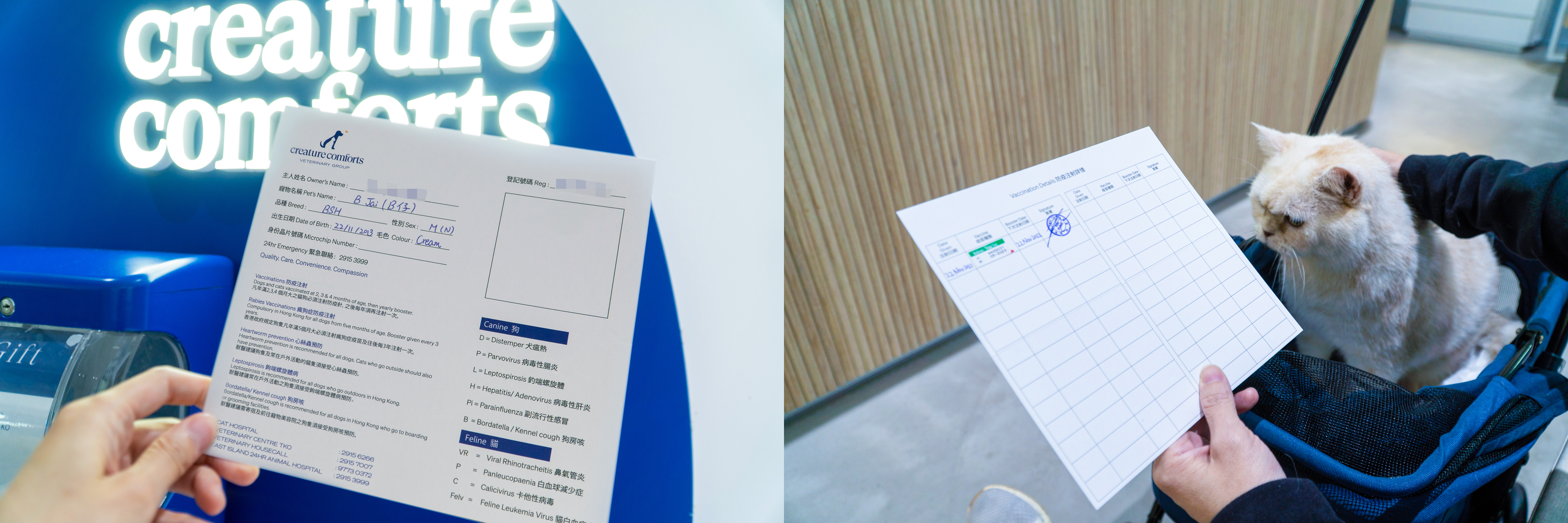
It is very important to keep the "vaccination card" issued after vaccination.
Q. My cat is afraid of going out and meeting strangers, will I scare my cat if I take it to the clinic?
Cats are sensitive animals that need to be taken care of. If you want your cat to feel safe while going to the clinic, you can choose a hospital that is only for cats. Creature Comfort Tseung Kwan O Cat Hospital is a dedicated clinic for cats, which is free from dogs and other pets. And it has a number of relaxation features, including Feliway spray throughout the hospital and Feliway sprayed towels for cats. Feliway imitates cats' natural pheromones and is a safe and effective way to relieve their stress. In addition, Tseung Kwan O Cat Hospital is accredited as a Cat Friendly Clinic by the International Society of Feline Medicine (ISFM), ensuring that the veterinarians and nursing staff are trained in international cat behavior courses and know how to greet cats gently. If you are still unsure, another option is to consider housecall vet. This will minimize irritation to your cat by allowing the vet to come to your home.
People are always afraid of vaccination, and cats are probably just the same. Many cat lovers are scared when they see their cats at the clinic, meowing when having vaccinations. However, having your cat getting sick is the least thing you wanna see. So, as a responsible owner, plan your cat's vaccination for it.
Creature Comfort Tseung Kwan O Cat Hospital
- Location: G19 Popwalk 2, 19 Tong Yin Street, Tseung Kwan O, New Territories, Hong Kong
- Opening hours: Monday to Sunday 10:00 - 20:00
- Details: https://petahood.com/zh_HK/shop/S0250/creature-comforts-veterinary-clinic-tseung-kwan-o
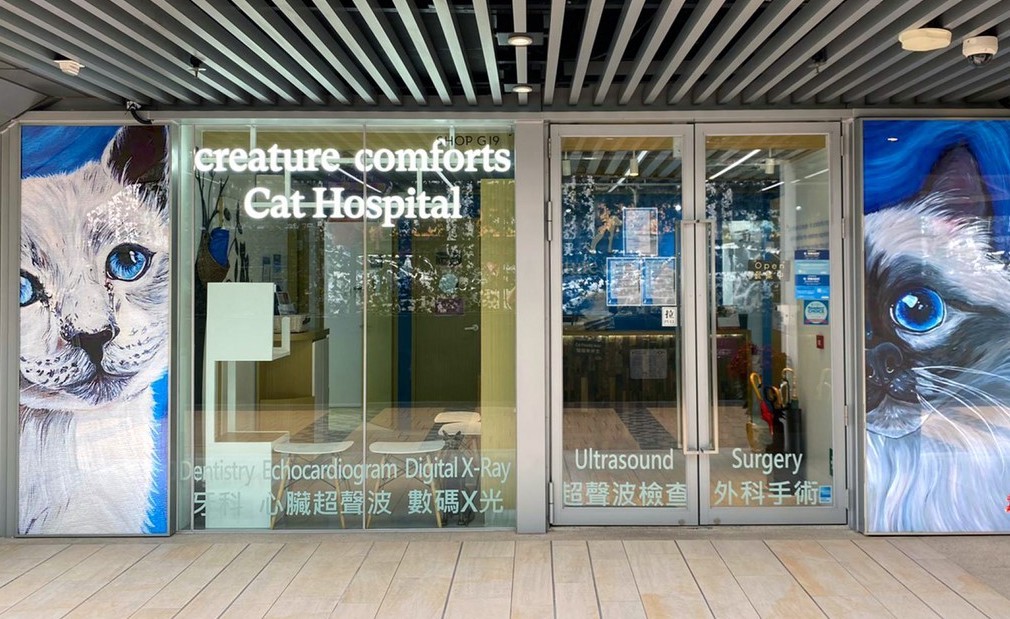
PET-A-HOOD Members’ Exclusive Offer
Creature Comforts Tseung Kwan O Cat Hospital is offering an exclusive "HK$100 Health Examination and Vaccination Offer" to PET-A-HOOD members. You can enjoy a cat health examination and vaccination offer, plus a Royal Canin gift box (total value over HK$800)! To learn more about the offer, click here: https://petahood.com/eshop/products/creature-comforts-cat-hospital
About PET-A-HOOD
Our platform is a one-stop destination for the latest and the most comprehensive pet-related information. From helping you discover pet-friendly businesses nearby, to planning fun weekend activities, we are your trusted partner when it comes to curating a healthy and exciting lifestyle for your pet friends and you. We also encourage pet owners to build their Pet’s Social Community through Pet-a-hood, by exchanging pet-caring experience, pet-related news, and connecting with other pet lovers in the neighbourhood.
